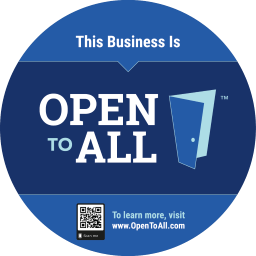
*Update - December 6, 2024
A recent nationwide injunction has temporarily stopped enforcing Beneficial Ownership Information (BOI) reporting requirements under the Corporate Transparency Act (CTA). While the original deadlines remain, companies are currently exempt from filing BOI reports. The future of BOI reporting hinges on the outcome of the legal challenge to the CTA. To stay informed and prepared, businesses should monitor updates, gather necessary information about beneficial owners, and consult with legal experts to understand their specific obligations and potential risks. As the legal landscape surrounding BOI reporting continues evolving, we will update you with the latest information. Be sure to check back on our blog for the most recent news and insights.
Picture your business as a house. The people whose names are on the deed are the official owners. But what if someone else secretly calls the shots behind the scenes, making decisions that affect everything from how the business is run to where the profits go? That’s where Beneficial Ownership Information Reporting comes in—it’s all about making sure that hidden owners don’t stay secret in compliance with the reporting requirements.

Beneficial Ownership Information Reporting shines a light on the real people pulling the strings in a business. It’s designed to prevent things like money laundering, fraud, and tax evasion, while also helping law enforcement track down the bad actors who might be using legitimate businesses for illegal activities. For small business owners, this might feel like just another box to check off, but it's a safeguard that protects the integrity of your business environment and keeps things fair for everyone.
Who Needs to Report Beneficial Ownership Information?
Most U.S.-based corporations and limited liability companies (LLCs) are required to file a Beneficial Ownership Information report, but there are some exceptions. If you’re a small business with fewer than 20 employees and less than $5 million in annual revenue, you might be exempt from these requirements. Additionally, non-profit organizations, government entities, and certain types of trusts may also be excluded from the required to report criteria.
It’s important to note that just because your business is small doesn’t automatically mean you’re exempt. The criteria outlined by the Financial Crimes Enforcement Network (FinCEN) are specific, so take the time to review them thoroughly. Understanding whether you qualify for these exemptions can save you from unnecessary paperwork or, worse, penalties for failing to file when you were required to do so.
For many small business owners, this is just another layer of compliance to manage, but think of it as a way to build credibility. When you report your beneficial owners, you’re showing your customers, partners, and the community that your business is transparent and trustworthy.
Who Is a Beneficial Owner?
A beneficial owner is more than just a name on a piece of paper—it’s the person who truly runs the show. This could be the business owner, a major shareholder, or someone who has significant influence over the company’s strategic and financial decisions. Essentially, if someone has the power to make big calls in your business or owns at least 25% of its equity, they’re considered a beneficial owner.
For small businesses, this is usually straightforward because the owner often wears many hats and is directly involved in every aspect of the company. However, if you have investors or other stakeholders who have a significant say in the decision-making process, you’ll need to include their details in your report.
What Information Do You Need to Provide?
Gathering the required information for Beneficial Ownership Information Reporting might seem like a tedious task, but it’s crucial for compliance. Here’s what you’ll need to provide for each beneficial owner:
- Full Legal Name: Their official name (no nicknames or aliases allowed).
- Date of Birth is a crucial piece of information required to report in the BOI report.: The owner’s birth date for identification purposes.
- Residential Address: The current address where they reside, not just a business address.
- Unique Identifying Number: This could be a passport number, driver's license number, or another government-issued ID to ensure accurate identification for the BOI report.
This might feel like personal and sensitive information, but it’s necessary to prevent identity theft and fraud. By reporting these details, you’re helping to create a more secure and transparent business landscape that benefits all legitimate business owners.
When Is the Deadline?
For existing businesses, the deadline to file your initial Beneficial Ownership Information report is January 1, 2025. For new businesses created or registered after this date, the report needs to be filed within 30 days is the timeframe given to reporting companies to file their BOI report. of the business formation.

This deadline might seem far away, but it’s essential to start gathering your information now to avoid last-minute stress. Missing this deadline could lead to severe consequences, including hefty fines, so make it a priority to get your documentation in order well in advance.
What Happens if You Don't Report?
Let’s be honest: failing to file your Beneficial Ownership Information report can be a costly mistake. Not only could you face fines of up to $500 per day, but in some cases, there could even be criminal charges if non-compliance is deemed intentional. For small business owners, that kind of financial hit can be devastating.
More than just the financial penalties, not reporting can damage your business’s reputation. Compliance shows that your business operates above board, following the rules that keep the marketplace fair for everyone. The small effort you put into reporting now can save you from bigger headaches down the road.
Beneficial Ownership Information Reporting: Key Details at a Glance
| Requirement | Details |
|---|---|
| Who Needs to Report | Most U.S. corporations and LLCs, with some exceptions like small businesses, non-profits, and government entities. Check FinCEN's criteria for specifics. |
| Beneficial Owner Definition | Any person with significant control or ownership (typically owning 25% or more) of the company. |
| Information to Provide | Full legal name, date of birth, residential address, and a unique identifying number (e.g., driver’s license or passport number). |
| Deadline for Filing | Existing businesses: January 1, 2025. New businesses: within 30 days of formation. |
| Penalties for Non-Compliance with the Corporate Transparency Act can be severe. | Fines up to $500 per day and potential criminal charges for intentional non-compliance. |
How Can You Prepare?
Here’s a step-by-step guide to help your small business get ready for Beneficial Ownership Information Reporting:
- Identify Your Owners: Sit down and figure out who really has control over your business. This is a great opportunity to clarify roles and responsibilities within your company.
- Gather Information for your BOI report.: Collect the required details for each beneficial owner, ensuring all information is up-to-date and accurate.
- Stay Updated: Keep an eye on any changes to the reporting requirements as they may impact your obligations. Rules can evolve, and staying informed will help you stay compliant without any surprises.
- Consult a Professional: If you’re unsure about any part of the reporting requirements, don’t hesitate to talk to a lawyer, accountant, or compliance specialist. It’s always better to get expert advice than to guess and risk non-compliance.
The Bottom Line
Beneficial Ownership Information Reporting might seem like just another task on your to-do list; however, it’s an essential one that plays a crucial role in maintaining a transparent and trustworthy business environment. By being open about who owns and controls your business, you’re helping to prevent illegal activities and creating a level playing field for all businesses, big and small.
Taking the time to properly report your beneficial ownership isn’t just about compliance—it’s about building a more honest business community that benefits everyone. If you’re ready to learn more or need to file your report, visit the FinCEN Beneficial Ownership Information Reporting page to submit your information as part of the Corporate Transparency Act requirements.








.jpg)